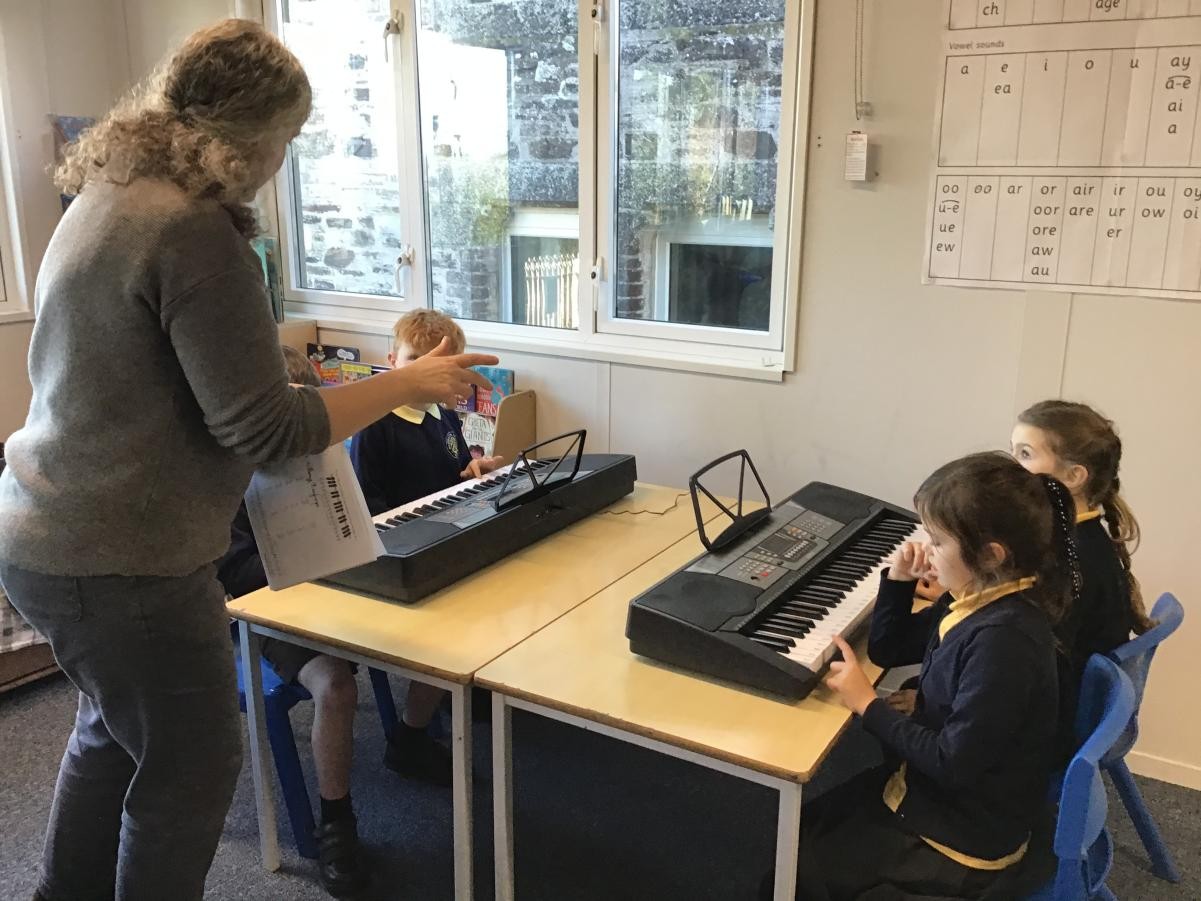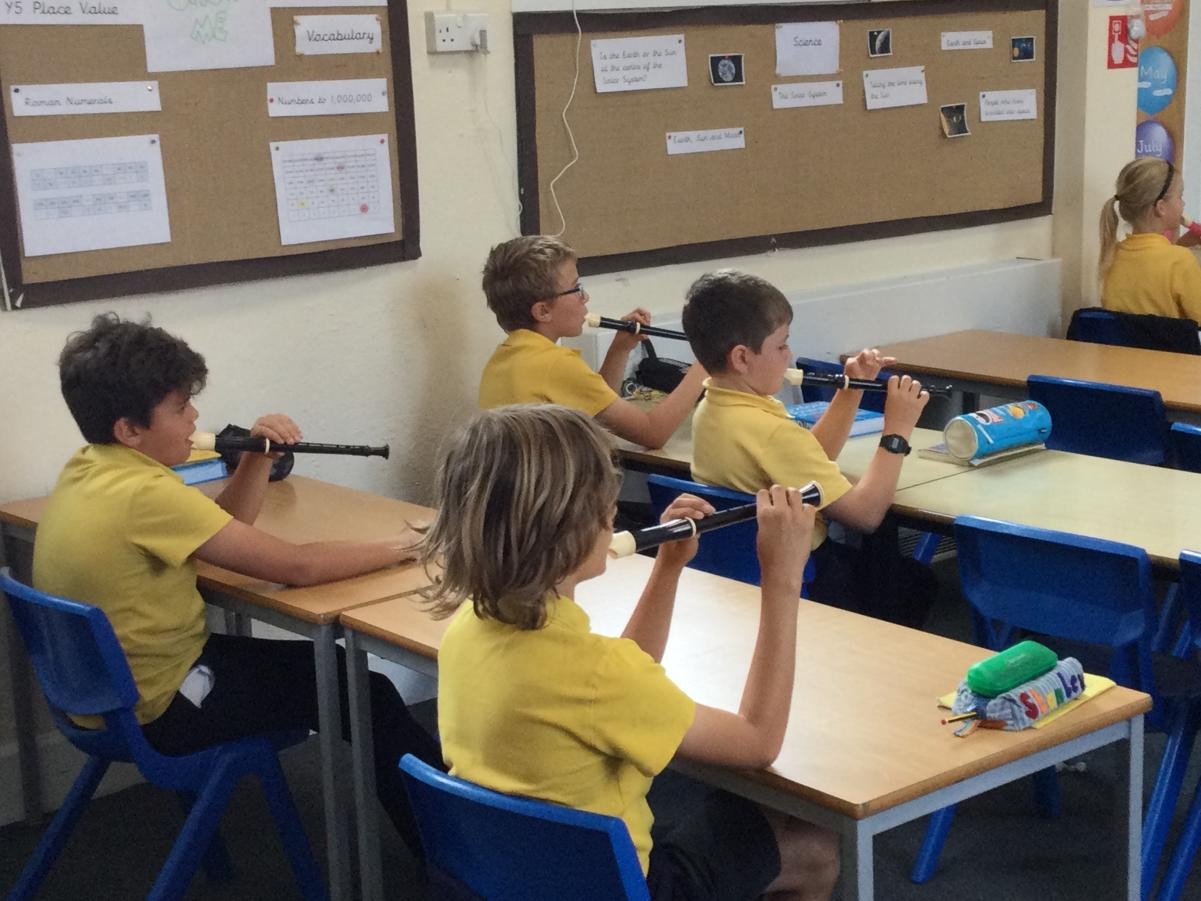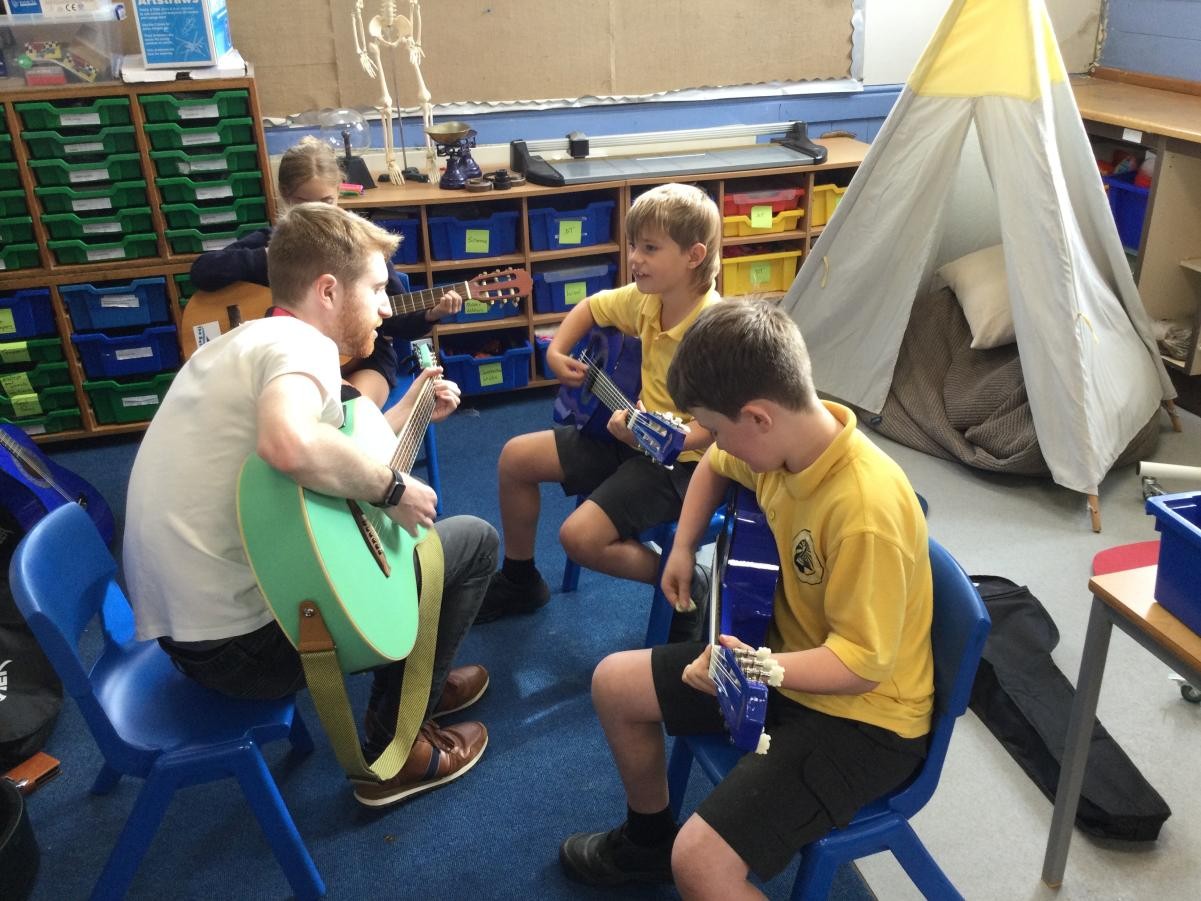“Music gives a soul to the universe, wings to the mind, flight to the imagination, and life to everything.”
Plato
Intent
To make learning as interesting, meaningful and engaging as possible, we have a Curious Curriculum. This is a knowledge based curriculum with each theme and subsequent lesson starting with an enquiry question. Children are active participants in their learning journey; we promote skills in creativity and develop critical thinking by following a line of enquiry.
At Warbstow, we aim to engage, motivate and inspire pupils to develop a love of music. We promote our children's talent as musicians increasing their self-confidence, creativity and sense of achievement.
Our curriculum for Music aims to ensure that all pupils can:
- perform, listen to, review and evaluate music across a range of historical periods, genres, styles and traditions, including the works of the great composers and musicians
- learn to sing and to use their voices, to create and compose music on their own and with others, have the opportunity to learn a musical instrument, use technology appropriately and have the opportunity to progress to the next level of musical excellence
- understand and explore how music is created, produced and communicated, including through the inter-related dimensions: pitch, duration, dynamics, tempo, timbre, texture, structure and appropriate musical notations.
Our curriculum is ambitious and designed to give all pupils, particularly children with SEND the knowledge they need to succeed in life. Learning is adapted to be ambitious yet allows children to develop their knowledge, skills and abilities to apply what they know and can do with increasing fluency and independence. Universal Provision strategies are implemented to scaffold and support learning.
Implementation:
We ensure that sufficient time is given to music in order to enable pupils to meet the expectations set out in the National Curriculum programme of study. Each unit of work has an on-going musical learning focus and a unit specific focus to enable previous musical skills to be embedded. We use the Charanga model music scheme for teaching Music. Music lessons usually follow a specific learning sequence; listen and appraise, musical activities (including pulse and rhythm), singing and voice, playing instruments, composition and perform and share.
The progression model and rolling cycle of units also follows the same learning sequence to ensure all interrelated elements of music are covered and implemented.
To further enhance musicianship and creativity, children take part in weekly singing assemblies and instrument lessons. Through these activities they develop their vocal and instrumental skills, explore sounds and musical concepts, and use their imagination and skills to create musical ideas and compositions.
We truly recognise the value of music in both curricular and extra-curricular teaching and learning. Music provides children with an outlet to express themselves creatively, appreciate different styles of music, learn a new instrument or experiment with their voices.
A variety of assessment approaches are used from observations, marking, white board ‘show me’ and informal assessments. This informs future planning, ensures any misconceptions are responded to and sets the pace of learning appropriately.
Impact:
We want our music provision to have a positive impact on our children. We want our children to become musical, creative pupils. Our children can:
- Sing and use their voices.
- Create and compose music on their own and with others.
- Use technology appropriately.
- Play a musical instrument.
- Understand and explore how music is created, produced and communicated.
- Understand the work of great composers and musicians.
- Enjoy and have an appreciation for music.
- Use musical language.
- Make judgements about the quality of music.
- Take part in performances.
- Perform and share a range of musical styles.
- Listen, review and evaluate music across a range of historical periods, genres, styles and traditions.
- Have opportunities to study a range of musical styles and genres, e.g. Jazz, Hip Hop, Pop, Rock etc.



